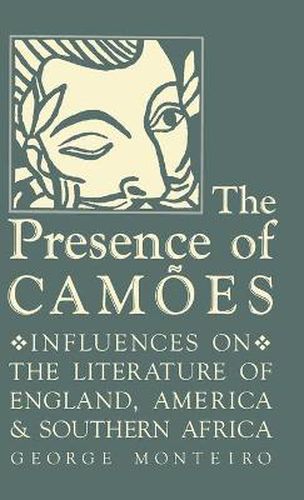Readings Newsletter
Become a Readings Member to make your shopping experience even easier.
Sign in or sign up for free!
You’re not far away from qualifying for FREE standard shipping within Australia
You’ve qualified for FREE standard shipping within Australia
The cart is loading…






Of the great epic poets in the Western tradition, Luis Vaz de Camoes (c. 1524- 1580) remains perhaps the least known outside his native Portugal, and his influence on literature in English has not been fully recognized. In this major work of comparative scholarship, George Monteiro thus breaks new ground, focusing on English-language writers whose vision and expression have been sharpened by their varied responses to Camoes. Introduced to English readers in 1655, Camoes’s work from the beginning appealed strongly to writers. The young Elizabeth Barrett’s Camonean poems, for example, inspired Edgar Allan Poe to appropriate elements from Camoes. Herman Melville’s reading of Camoes bore fruit in his career-long borrowings from the Portuguese poet. Longfellow, T.W. Higginson, and Emily Dickinson read and championed Camoes. AndCamoes as epicist and love poet is an eminence grise in several of Elizabeth Bishop’s strongest Brazilian poems. Southern African writers have interpreted and reinterpreted Adamastor, Camoes’s Spirit of the Cape, as both a symbol of a dangerous and mysterious Africa and an emblem of European imperialism. Recognizing the presence of Camoes leads Monteiro to provocative rereadings of such texts as Dickinson’s Master letters, Poe’s Raven, Melville’s late poetry, and Bishop’s Questions of Travel.
$9.00 standard shipping within Australia
FREE standard shipping within Australia for orders over $100.00
Express & International shipping calculated at checkout
Of the great epic poets in the Western tradition, Luis Vaz de Camoes (c. 1524- 1580) remains perhaps the least known outside his native Portugal, and his influence on literature in English has not been fully recognized. In this major work of comparative scholarship, George Monteiro thus breaks new ground, focusing on English-language writers whose vision and expression have been sharpened by their varied responses to Camoes. Introduced to English readers in 1655, Camoes’s work from the beginning appealed strongly to writers. The young Elizabeth Barrett’s Camonean poems, for example, inspired Edgar Allan Poe to appropriate elements from Camoes. Herman Melville’s reading of Camoes bore fruit in his career-long borrowings from the Portuguese poet. Longfellow, T.W. Higginson, and Emily Dickinson read and championed Camoes. AndCamoes as epicist and love poet is an eminence grise in several of Elizabeth Bishop’s strongest Brazilian poems. Southern African writers have interpreted and reinterpreted Adamastor, Camoes’s Spirit of the Cape, as both a symbol of a dangerous and mysterious Africa and an emblem of European imperialism. Recognizing the presence of Camoes leads Monteiro to provocative rereadings of such texts as Dickinson’s Master letters, Poe’s Raven, Melville’s late poetry, and Bishop’s Questions of Travel.